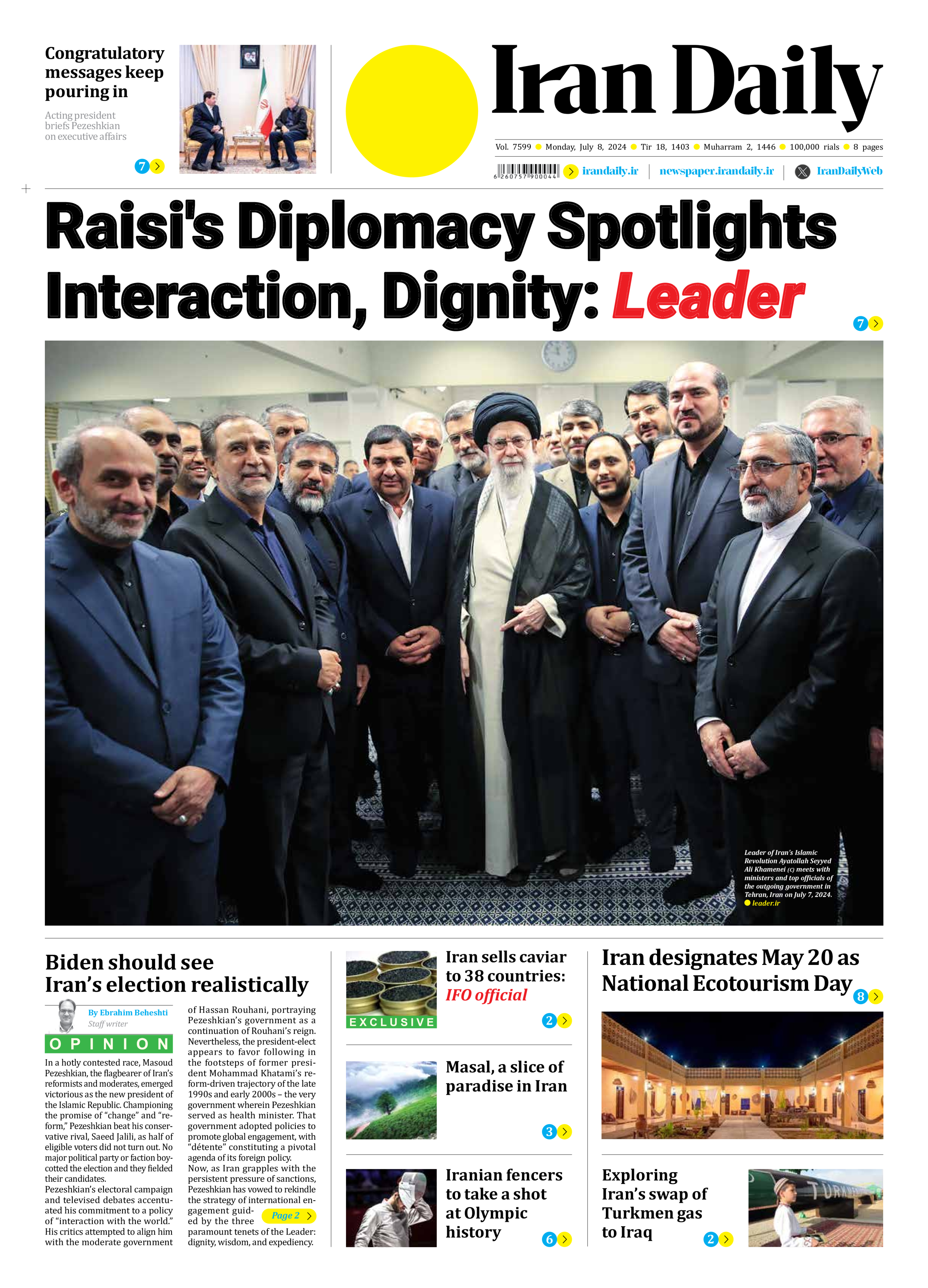
Biden should see Iran’s election realistically
By Ebrahim Beheshti
Staff writer
In a hotly contested race, Masoud Pezeshkian, the flagbearer of Iran’s reformists and moderates, emerged victorious as the new president of the Islamic Republic. Championing the promise of “change” and “reform,” Pezeshkian beat his conservative rival, Saeed Jalili, as half of eligible voters did not turn out. No major political party or faction boycotted the election and they fielded their candidates.
Pezeshkian’s electoral campaign and televised debates accentuated his commitment to a policy of “interaction with the world.” His critics attempted to align him with the moderate government of Hassan Rouhani, portraying Pezeshkian’s government as a continuation of Rouhani’s reign. Nevertheless, the president-elect appears to favor following in the footsteps of former president Mohammad Khatami’s reform-driven trajectory of the late 1990s and early 2000s – the very government wherein Pezeshkian served as health minister. That government adopted policies to promote global engagement, with “détente” constituting a pivotal agenda of its foreign policy.
Now, as Iran grapples with the persistent pressure of sanctions, Pezeshkian has vowed to rekindle the strategy of international engagement guided by the three paramount tenets of the Leader: dignity, wisdom, and expediency.
Page 2







